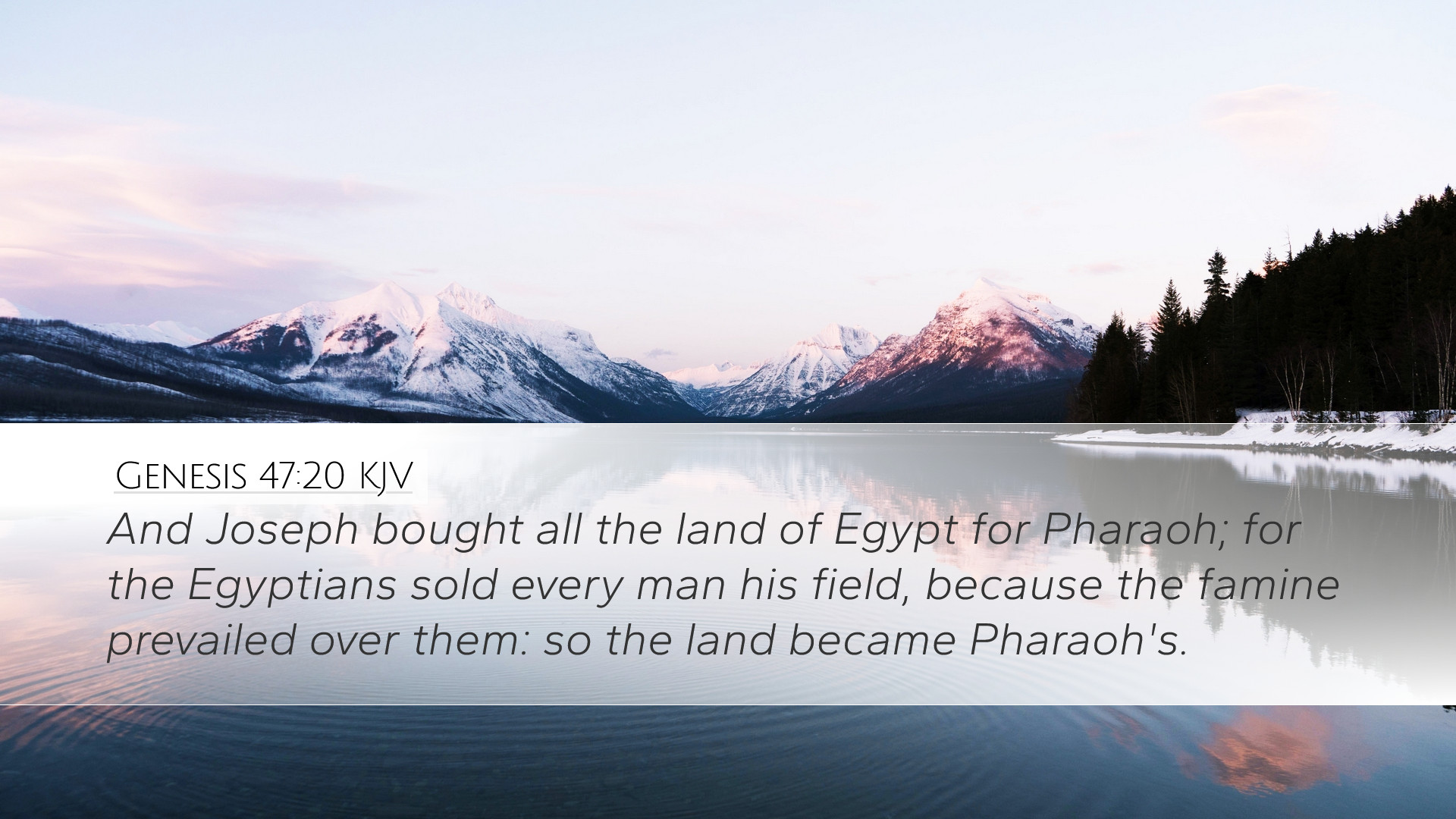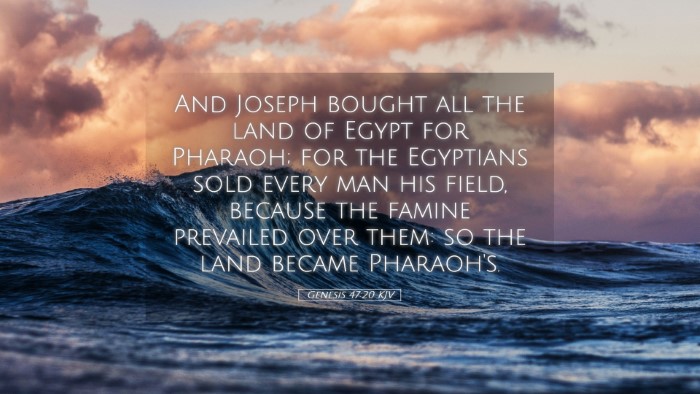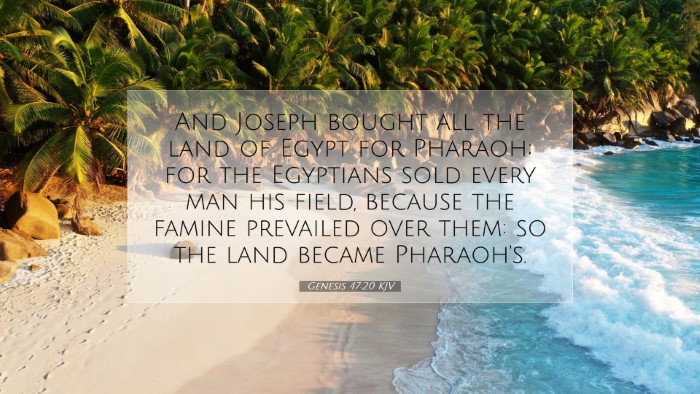Commentary on Genesis 47:20
Verse: "And Joseph bought all the land of Egypt for Pharaoh; for the Egyptians sold every man his field, because the famine prevailed over them: so the land became Pharaoh's."
Introduction to the Context
In the narrative of Genesis, we find Joseph, a man of remarkable insight and administrative skill, dealing with the consequences of a severe famine that struck Egypt. This verse holds significance as it highlights Joseph's economic strategy during a crisis and serves as a reflection of God's providence during difficult times. Joseph's actions not only preserved the people but also centered the power in Pharaoh's hands.
Insights from Public Domain Commentaries
Matthew Henry's Commentary
Matthew Henry emphasizes the gravity of the famine that led Egyptians to sell their lands. He points out that the storehouses Joseph had prepared were a testament to God's foresight and His provision through Joseph. Henry writes:
“The Egyptians were driven by necessity; they were willing to part with their land due to the famine's severity, illustrating the lengths to which desperation drives man. In doing so, they essentially made themselves servants to Pharaoh, showcasing the submission of people under sovereign authority.”
Moreover, Henry views Joseph's actions as both strategic and benevolent, showing how leaders can create systems that protect their people while consolidating power.
Albert Barnes' Commentary
Albert Barnes focuses on the implications of the land transaction. He provides detailed insights into the consequences of such a centralization of land ownership:
“Joseph’s purchase marked a pivotal turn in Egyptian society, where he consolidated economic resources under Pharaoh’s domain. This act not only represents governmental control over agrarian resources but also illustrates a shift in the socio-economic structure, placing vast wealth in the hands of the state.”
Barnes also notes that while this was beneficial in the short term for food security, it raised concerns for future generations regarding land ownership and personal rights.
Adam Clarke's Commentary
Adam Clarke offers a theological perspective on this scripture, addressing the ethical implications of Joseph's dealings. Clarke states:
“Joseph’s ability to navigate through moral dilemmas is commendable. His actions, while seeming pragmatic, challenge us to consider the ethical dimensions of leadership, particularly in crisis management where personal sacrifice is often requested from the populace.”
Clarke further suggests that Joseph's conduct exemplifies a godly quality of stewardship, indicating that leaders are called to serve rather than dominate.
Theological Themes
The account in Genesis 47:20 reflects several theological themes which are critical to understanding divine providence, human agency in governance, and the nature of economic systems influenced by crises.
- Divine Sovereignty: God’s providence is evident through Joseph's life and decisions. The famine, while terrible, served as a means for God to fulfill His promises regarding Joseph and his family.
- Human Agency: Joseph’s proactive measures show how human decisions play a crucial role in the unfolding of God’s plans.
- Power Dynamics: The transaction illustrates the precarious nature of power and wealth distribution, particularly during times of shortage.
- Sacrifice and Service: The passage teaches about the responsibility of leaders to their people and the sacrifices required for the common good.
Practical Applications
For pastors, students, theologians, and scholars, Genesis 47:20 can lead to poignant discussions about leadership ethics, stewardship, and societal structures. Here are a few practical reflections:
- Consider how crises reveal the true nature of leadership and the responsibilities leaders hold toward their constituents.
- Reflect upon the economic systems in modern contexts and how they may be influenced by similar dynamics of dependency and authority.
- Encourage balanced stewardship discussions that focus on ethical governance and the moral implications of resource allocation.
Conclusion
Genesis 47:20 serves as a profound reminder of the complexities of leadership, especially in times of hardship. Through careful reflection on the commentaries by Matthew Henry, Albert Barnes, and Adam Clarke, we glean insights that impact both theoretical understanding and practical application. As we engage with this text, may we seek to embody the wisdom of divine stewardship in our personal and communal lives.


